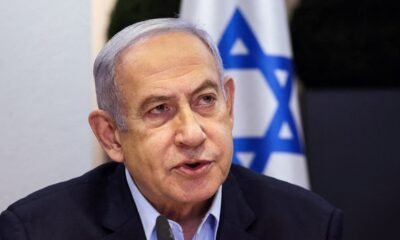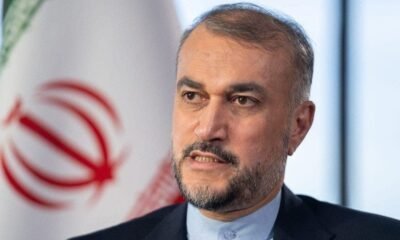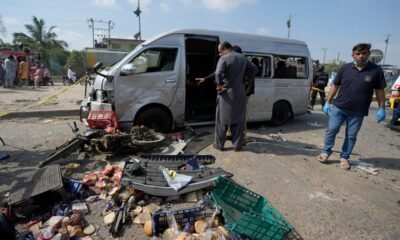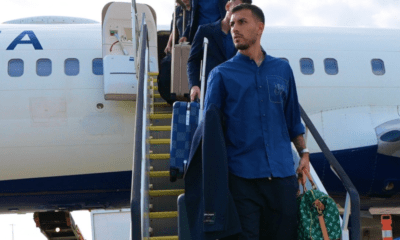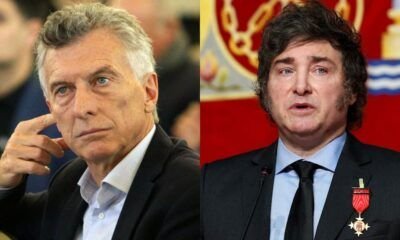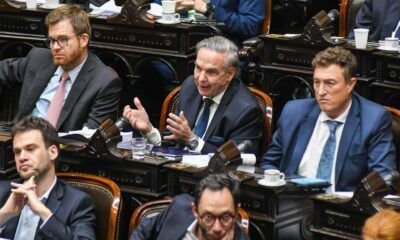INTERNACIONAL
Pakistani, Iranian leaders seek to increase trade, ease diplomatic tensions

Iranian and Pakistani leaders vowed to strengthen economic and security cooperation in a meeting on Monday, as the two countries seek to smooth over a diplomatic rift.
Their meeting was part of efforts by Islamabad and Tehran to mend ties which had been briefly strained in January when each carried out strikes in the other’s territory, targeting militants accused of attacking their own security forces.
Iran’s President Ebrahim Raisi and Pakistani Prime Minister Shehbaz Sharifin spoke to reporters after meeting at Sharif’s office, hours after Raisi arrived in Islamabad for a three-day visit.
PAKISTANI SECURITY FORCES KILL 7 MILITANTS TRYING TO ENTER COUNTRY
Authorities have deployed hundreds of additional police and paramilitary forces to ensure security during the visit.
Pakistan has witnessed a surge in militant violence in recent months, mostly blamed on Pakistani Taliban and insurgents targeting security forces in Pakistan and neighboring Iran.
Sharif welcomed Raisi with an honor guard ceremony in front of the premier’s office. According to a statement released by the premier’s office, the two leaders discussed a range of bilateral issues and vowed to cooperate to fight terrorism, as well as jointly reiterating condemnations of Israel’s war in Gaza.
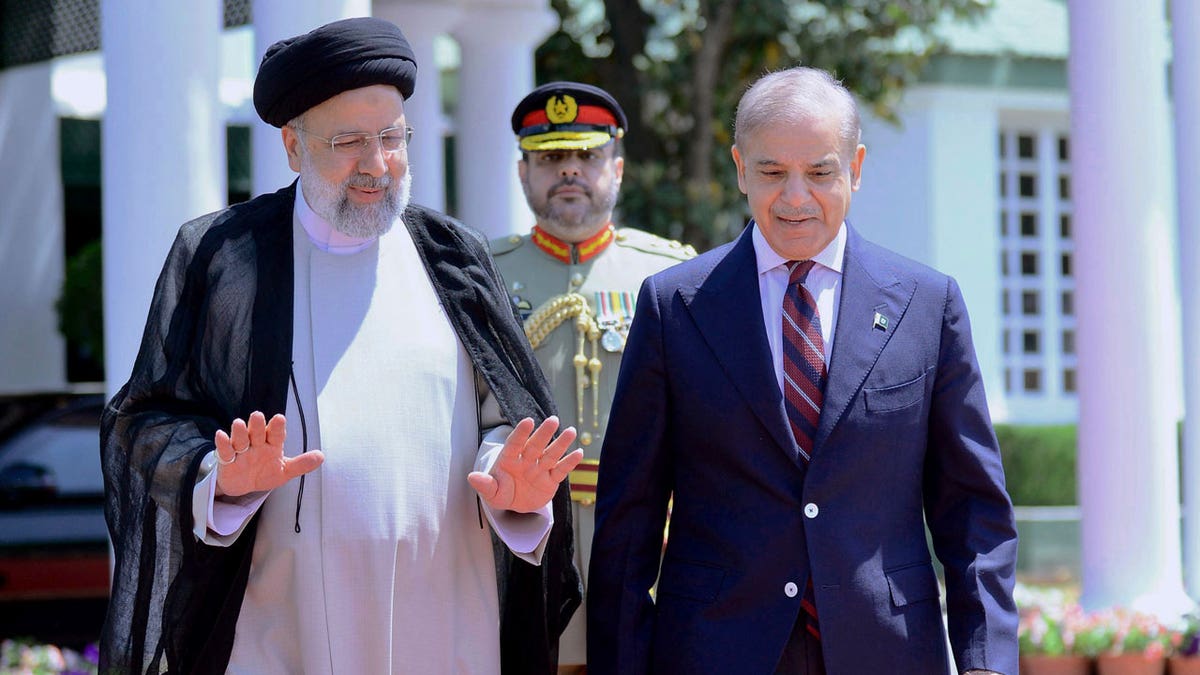
Iranian President Ebrahim Raisi, left, walks with Pakistani Prime Minister Shehbaz Sharif, right during a welcome ceremony in the prime minister’s house in Islamabad, Pakistan, on April 22, 2024. (Prime Minister Office via AP)
Sharif praised Iran’s «strong stand on the issue of Palestine» and said «Pakistan is also with the Palestinians.»
In his televised remarks, Raisi said that the killings by Israel in Gaza were being committed with the support of the United States and other Western countries. He criticized the international organizations, including the United Nations, saying «they say they support human rights, but they proved that they are inefficient».
He also vowed to boost what he called «unacceptably» meager bilateral trade and called for setting up more border markers. Pakistan and Iran set up the first such border market in southwestern Pakistan’s Baluchistan province last year, promising to set up five more such markets under a 2012 agreement.
The two leaders also signed eight cooperation agreements, according to Sharif’s office.
Authorities said the two sides also discussed the multi-billion gas pipeline project, on hold since 2014. The project — opposed by Washington for what it says is a violation of sanctions imposed on Tehran over its nuclear program — launched in 2013 to supply Iranian natural gas to energy-starved Pakistan.
Iran says it has already completed the pipeline on its side of the border after investing $2 billion. Pakistan was supposed to finish construction on its territory by the end of 2014, but work stalled, leading to tensions between the two nations.
The Iranian president is set to meet with his Pakistani counterpart Asil Ali Zardari who helped launch the pipeline project after traveling to Iran in 2013.
CLICK HERE TO GET THE FOX NEWS APP
He also met with Pakistan’s Foreign Minister Ishaq Dar. The two discussed regional and global developments and «affirmed commitment to peace and constructive dialogue for resolving regional challenges.»
Raisi is accompanied by his spouse and a high-level delegation. He plans to visit Karachi, the country’s biggest city, and Lahore, where he will meet with the country’s recently elected first female chief minister Maryam Nawaz Sharif.
The visit comes after Iran’s airstrike into Israel, which was in response to an Israeli strike in Syria that had killed two Iranian generals in a consular building. Pakistan is among the countries that have no diplomatic relations with Israel because of the issue of Palestinian statehood.
INTERNACIONAL
El alto precio que deben pagar los presos en Ucrania para conseguir la libertad: luchar en el frente contra Rusia
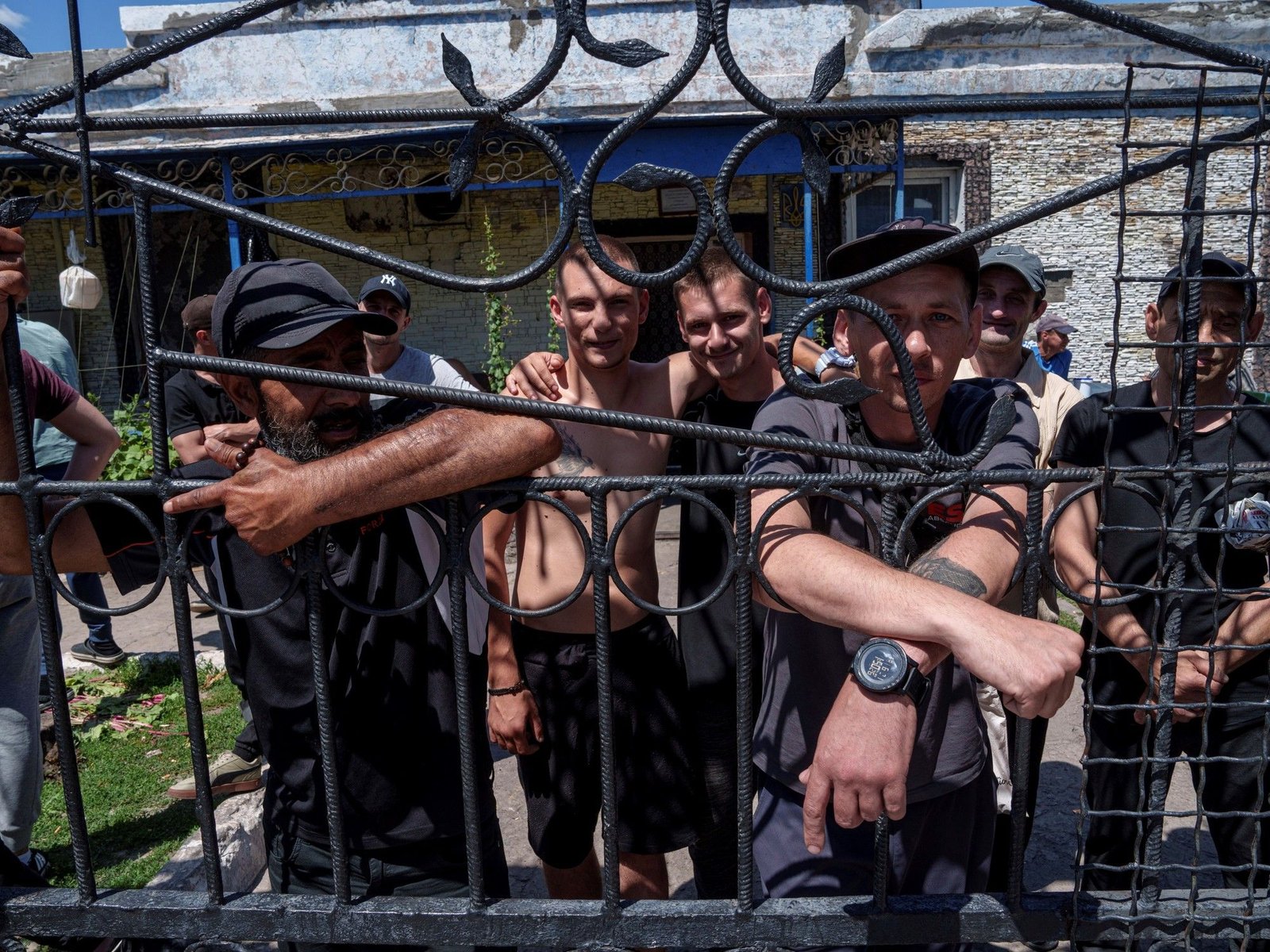
En una colonia penitenciaria rural en el sureste de Ucrania, varios presos se reúnen bajo alambre de púas para escuchar a un reclutador del ejército ucraniano que les ofrece una oportunidad de libertad condicional. A cambio, deben unirse a la batalla contra Rusia.
“Puedes poner fin a esto y empezar una nueva vida”, dijo el reclutador, un integrante de un batallón de asalto voluntario. “Lo principal es tu voluntad, porque vas a defender la patria. No lo conseguirás con el 50%, tienes que dar el 100% de ti mismo, incluso el 150%”.
Ucrania está ampliando el reclutamiento ante la grave escasez de personal en el campo de batalla después de más de dos años de combate contra la invasión rusa. Y sus labores de reclutamiento se han dirigido, por primera vez, a la población penitenciaria del país.
Aunque Ucrania no anuncia ningún detalle sobre el número de tropas desplegadas ni sobre las bajas, los comandantes en el frente de batalla reconocen abiertamente que enfrentan problemas de falta de personal mientras Rusia sigue acumulando fuerzas en el este de Ucrania y avanzando hacia el oeste.
Más de 3.000 prisioneros ya han sido puestos en libertad condicional y asignados a unidades militares después que el parlamento aprobó dicho reclutamiento en un polémico proyecto de ley de movilización el mes pasado, afirmó a The Associated Press la viceministra de Justicia ucraniana, Olena Vysotska.
El país tiene una población carcelaria de unas 42.000 personas, según las cifras remitidas por el gobierno a la Unión Europea.
Aproximadamente 27.000 reclusos podrían ser elegibles para el nuevo programa, según estimaciones del Ministerio de Justicia.
 Convict prisoners which join Ukrainian army train at the polygon, in the Dnipropetrovsk region, Ukraine, Saturday, June 22, 2024. Ukraine is expanding its military recruiting to cope with battlefield shortages more than two years into fighting Russia’s full-scale invasion. (AP Photo/Evgeniy Maloletka)
Convict prisoners which join Ukrainian army train at the polygon, in the Dnipropetrovsk region, Ukraine, Saturday, June 22, 2024. Ukraine is expanding its military recruiting to cope with battlefield shortages more than two years into fighting Russia’s full-scale invasion. (AP Photo/Evgeniy Maloletka)“Gran parte de la motivación proviene del deseo (de los reclusos) de regresar a casa como héroes y no de regresar de la prisión”, dijo Vysotska.
Ernest Volvach, de 27 años, quiere aceptar la oferta. Está cumpliendo una condena de dos años por robo en la colonia penitenciaria de la región ucraniana de Dnipropetrovsk. Trabaja en la cocina, sirviendo comida en tazones de hojalata.
“Es una estupidez estar aquí sin hacer nada”, dijo Volvach, añadiendo que desde el inicio de la guerra quería “hacer algo por Ucrania” y tener la oportunidad de alistarse. “Ahora ha surgido”.
-
POLITICA2 días ago
Cristina Kirchner reapareció y criticó al Gobierno: “El superávit fiscal es cada vez más trucho”
-
POLITICA1 día ago
El PRO publicó un duro informe y cuestionó el rumbo del Gobierno: “Hay más interrogantes que certezas”
-
POLITICA2 días ago
Fuerte reclamo de la oposición dialoguista al Gobierno por la crisis económica tras la sanción de la Ley Bases
-
POLITICA2 días ago
Los mercados castigan a Milei, la ayuda de los «dinosaurios» y una anomalía del Senado
-
ECONOMIA2 días ago
Nuevo aumento de naftas y gasoil a partir del 1 de julio
-
POLITICA23 horas ago
El marino y su esposa rechazaron la denuncia de Laudelina de que atropellaron a Loan y lanzaron un desafío

